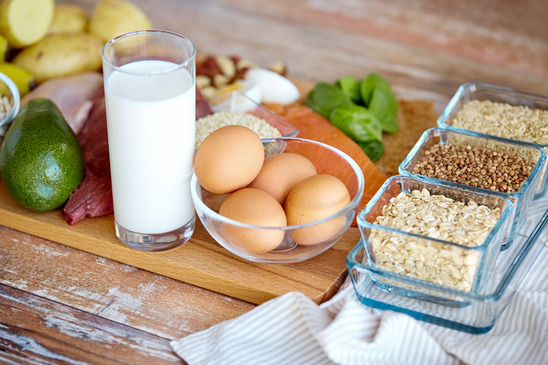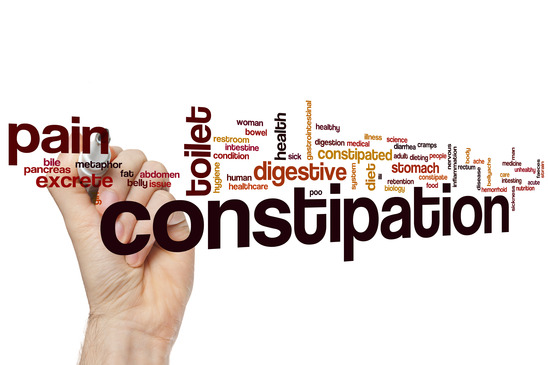
Iron Deficiency and What You Can Do To Kick it to the Curb
Iron deficiencies are actually the most popular deficiency known to humans according to the Center for Disease Control. The function of iron is to help our blood cells carry oxygen throughout our body. It also stores oxygen for our body to use later. You’ve probably noticed the telltale red color your blood takes on when you skin your knee or suffer from a dreaded paper cut.
Iron is actually responsible for that color. Without iron, humans can suffer from a verity of conditions including fatigue, shortness of breath and even heart palpitations. Thankfully, just by opening up your refrigerator or food pantry, you can track down some foods that might help you boost your iron – thus preventing any major health issues. Iron is easiest to find in vegetables, fruits, meat and grain. There are two types of iron to be aware of.
The first, heme iron can be found in products containing blood. Think meats like chicken or beef. The second type of iron, non-heme is from food products that don’t contain any blood. This means your vegetables, fruits and grains. And while heme has been said to be easier absorbed by the human body, non-heme can be just as useful, especially when it is consumed with foods that are rich in Vitamin C or if the food is cooked in a pot or a skillet.
Meats and Eggs
There are a lot of iron-rich foods that fall under this category. And while beef has incredibly high levels of iron, which comes in handy if you’re suffering from something like anemia, it’s not the only meat that provides your body with iron. Chicken liver and turkey are additional meats that are iron-rich and a strong alternative to beef. On the one hand, chicken liver helps to prevent illness and even promotes good eyesight. Turkey, however, shouldn’t just be scarfed down at Thanksgiving. Outside of the incredible amount of protein found in turkey, you’ll also find goodies like Zinc and Potassium.
Finally, egg yolks are an excellent source of iron, offering you more nutrients than a single multivitamin.
Seafood
Not everyone enjoys seafood, but if you do, know that it is an excellent source of iron. In fact, clams are known to have an even higher content of iron that beef liver! Another delicious seafood is scallops. Containing several minerals and nutrients, this super food helps to keep a variety of potential diseases in check.
Fruits and Vegetables
Your mother always told you to eat your fruits and vegetables and it turns out, she had a point. Vegetables such as spinach, potatoes and broccoli contain minerals, nutrients and, often times, Vitamin C, which helps your body process non-heme iron.
Breads and Cereals
Bread is one of those iron-rich foods that no one really thinks about. However, the next time you swing by the local bakery, be sure to pick up a loaf. Additionally, oatmeal is a fast, easy breakfast that has quite a bit of Omega-3. For better tasting oatmeal, add a handful of fruit which contains Vitamin C and can assist with your iron absorption.

5 Natural Ways to Relieve Constipation Quickly
Bloating, gas, painful cramps, and that indescribable heaviness-the symptoms of constipation make this very common condition uncommonly difficult to endure. Still, short of reaching for a laxative, there’s nothing you can do but wait, right? Wrong! These tried and true natural methods for overcoming constipation will clear up the backlog and leave you feeling light and relieved in no time.
1. Just Add Water
Often, constipation and hard, dry, painful-to-pass stools are the result of a severe shortage of water in your body. To increase regularity and reduce pain, make sure you’re drinking the recommended 8 glasses of water a day. Additionally, make sure that you eliminate dehydrating drinks like coffee and black tea that act as diuretics, siphoning off your body’s water supply.
2. Fibre is Your Friend
Boosting your intake of fibre rich foods can improve the frequency and consistency of your movements. Fibre makes its way to your colon and mops up excess water, bulking up the stool and helping the evacuation process. Fruits, particularly prunes, pears and kiwis, are a fantastic, bowel movement-boosting source of insoluble fibre. Other great sources of dietary fibre include vegetables, whole grains, legumes and beans but remember to increase your water intake as you add more fiber into your diet to keep things running smoothly.
3. Cut Out the Common Culprits
While certain foods seem to trigger constipation in some and not others, there are foods that generally lead to misbehaving bowels. In large amounts, chocolate, certain dairy products like milk and cheese, as well as starchy, unripe bananas are some of the most frequently complained of bowel-blockers. Removing these items from your meals could help to improve regularity.
4. Steer Clear of Stress
Sufferers often report that constipation follows an increase in tension and stress. Chronic stress is linked with decreased blood flow to the gut, as well as decreased gastrointestinal motility so finding ways to alleviate anxiety could be the key to unlocking painless, frequent bowel movements. Practice deep breathing exercises, remove yourself from tension –inducing situations or simply take a calming five minute break. Replenish the beneficial gut flora that stress often wipes out with pro-biotic rich, live yoghurt, to make a lasting difference.
5. Stretch and Stride
Nothing relieves backed up bowels like physical exercise. Whether you go for organ massaging deep-stretching exercise or prefer a long, brisk walk, getting moving will definitely get things moving. Exercise can improve intestinal motility and jumping jacks, leg lifts or even just the simple act of standing up can lend reluctant bowels the gravity they need to kick start a movement. You don’t have to spend another day waiting for constipation to pass. Use these medication-free methods to get proactive about regulating bowel movements and find the quick, natural relief you need.


